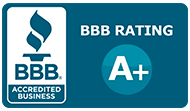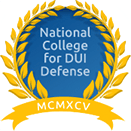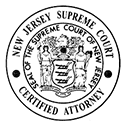Middlesex County Forgery Defense Attorneys
Forgery is an offense that can result in Middlesex County from a wide variety of conduct. Whether a charge involves allegations that you attempted to pass fake/counterfeit cash, the forging of a check, or presenting false identity documents like a driver’s license, N.J.S.A. 2C:21-1 (“Forgery and related offenses”) can cause serious problems. In fact, you face the real risk of prison time if you have priors, the theft involved a sizable amount or any number of other exacerbating are present. This is important reason for you to hire a lawyer with the strongest qualifications since that will ensure you have every chance of avoiding a conviction.
Our attorneys have years of experience formidably representing clients arrested in Metuchen, East Brunswick, Edison, South Plainfield and other municipalities. If you have been charged with forging a document, obtaining CDS by fraud or theft by deception, we are former prosecutors and skilled criminal defense lawyers with over 100 combined years in practice. A lawyer is prepared to meet you in our East Brunswick Office or speak to you immediately at 732-227-1200.
Forgery Offense in Middlesex County
N.J.S.A. 2C:21-1 is the New Jersey statute which targets forgery related violations in Edison and elsewhere in Middlesex County. The key component of a forgery offense is a “writing” including, but not limited to, money, official documents, passport, driver’s license, credit cards, badges, tokens, prescription drug tablets and pads, gift cards, sales receipts and labels. A charge for forgery can result in one of three ways at the Superior Court in New Brunswick NJ. Another fundamental requirement is that the writing was forged by the defendant for the purpose to defraud or injure another person. If both of these core elements exist (i.e. writing used to defraud or injure), a forgery arises when someone: (1) alters or changes the writing of another; (2) issues a writing that purports to be the writing of another; or (3) utters a forged writing.
- Material Elements. There are three (3) elements which must be proven by the Middlesex County Prosecutor’s Office in order to convict you of forgery. The first thing that has to be established is the existence of a writing of another. Second, the accused must have altered, completed, executed, authenticated, issued or transferred the writing, or uttered the document with knowledge that it was altered or subject to a fraudulent practice. Third, the state must prove that the defendant had a purpose to defraud or injure someone when they engaged in the aforesaid conduct.
- Grading of Offense. Forgery is always an indictable offense that can only be heard at the New Brunswick County Courthouse. When the forged, counterfeit or altered writing is a government issued document such as a New Jersey Prescription Blank, involves securities (e.g. stock, bond, etc.) or memorializes an interest or claim against any property (e.g. deed, mortgage, etc.), the violation is a third degree crime. The charge is also a third degree crime where the writing is a check. In all other instances, forgery is a fourth degree crime.
- Penalties. Fourth degree forgery carries penalties that include a maximum fine of $10,000 and up to 18 months in prison. A third degree forgery results in a fine of up to $15,000 and a term of incarceration that can reach 5 years.
- Possession of a Forgery Device. A separate offense arises when the violation involves possession of forgery devices. A conviction for possessing a device used for forging, altering or counterfeiting written instruments, including scanners, plates, and computers, a third degree crime.
New Brunswick Forgery Lawyer
Forgery is a felony criminal offense that must be sent to New Brunswick since that is where the Middlesex County Superior Court is located. The Superior Court is the only venue where allegations of forging a driver’s license, check or other document can be adjudicated. The lawyers at The Law Offices of Jonathan F. Marshall have considerable knowledge in what it takes to effectively litigate cases at this level and include a former supervisor in the Middlesex County Prosecutor’s Office. Whether you were charged with forgery in New Brunswick, Piscataway, North Brunswick, Old Bridge or Sayreville, we have the tools to help you. To speak to a lawyer on our staff anytime 24/7, call our New Brunswick Office at 732-246-7126.
Frequently Asked Questions in Middlesex County Forgery Cases
Is Forgery A Felony In New Jersey? Forgery is an indictable offense that can only be heard at the county courthouse in New Brunswick. Indictable offenses are akin to felonies in other states. It just so happens that this state does not use this term in any context – the law refers to these types of charges as indictable crimes. Like felonies, indictable offenses are serious crimes that often carry significant penalties.
What Is The Penalty For Forging A New Jersey License? While forgery is usually a third- or fourth-degree indictable offense, New Jersey allows for enhanced penalties if you are found guilty of forging a New Jersey license. Forging a New Jersey license may result in the charge being upgraded to a second-degree indictable crime, with a possible sentence of 10 years in prison and a fine of up to $150,000. You may also be charged with a second-degree indictable forgery offense just by having devices or materials that are used to create a fake driver’s license.
Is Forgery A Serious Crime? Yes. A Middlesex County forgery charge is a serious matter. If you are convicted of forgery at the Middlesex County Superior Court, you can be sentenced to a significant period of incarceration (i.e. prison) and a hefty fine. You will also have a lifelong criminal record. This can prevent you from finding or maintaining employment, securing housing, and it may also impact the custody you have with your children. Hiring an attorney with a track record of success is clearly your greatest weapon for avoiding this potentially disastrous consequences.
What Are The Three Essential Elements Of Forgery? To be convicted of forgery in New Jersey, the prosecutor must show (1) the existence of a writing of another person, (2) you must have altered the writing in some way, and (3) you purposefully did so with the intention to defraud or injure someone. A common example of forgery involves alteration of a bank check. This can be done by changing the name or amount on the check. It is important to understand that for this action to be a forgery, you must have intentionally altered the writing for a fraudulent purpose.
How Is Forgery Proven In Court? To prove a forgery charge, the prosecutor must show that all of the elements of the charge have been satisfied. This is usually done through the testimony of witnesses and evidence presented by a victim or an entity that was being defrauded. In many cases, a forensic document examiner will testify to show how the altered writing differs from one that is genuine. Many bank checks or government-issued IDs have security features that help expose fakes. A forensic examiner may be required to explain these fail safes and point out how the fake writing lacks them. It will also need to be proven that you altered the writing yourself or knew the writing had been altered when you attempted to use it or transfer it to another person.
Can I Go To Jail For Forgery? Yes. New Jersey treats the crime of forgery seriously, and in most cases, it is charged as an indictable offense (essentially a felony). This means that if you are convicted of forgery, you may receive a jail sentence of up to 10 years and a fine of up to $150,000. Whether you will be sentenced to jail time is dependent on the facts of your specific case, the discretion of the judge, and your prior criminal history. If you have been convicted of forgery in the past, the odds of you receiving jail time for a subsequent offense significantly increase.
What Are Some Defenses To Forgery? As with all criminal charges, legal defenses exist to the crime of forgery that you should discuss with experienced criminal defense attorneys. Because forgery requires intent to defraud or injure another person, your defense strategy may be successful if you can show that you altered a writing under the mistaken belief that you had permission to do so. You may also have a defense against forgery if you can show that an alteration was made to correct an error in the writing, not to defraud.













